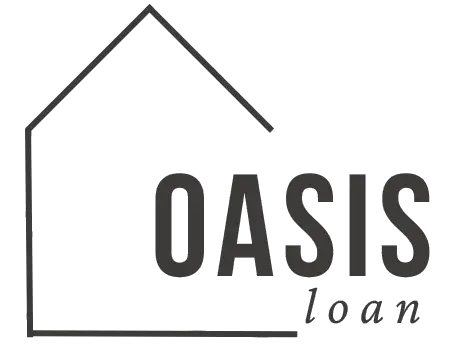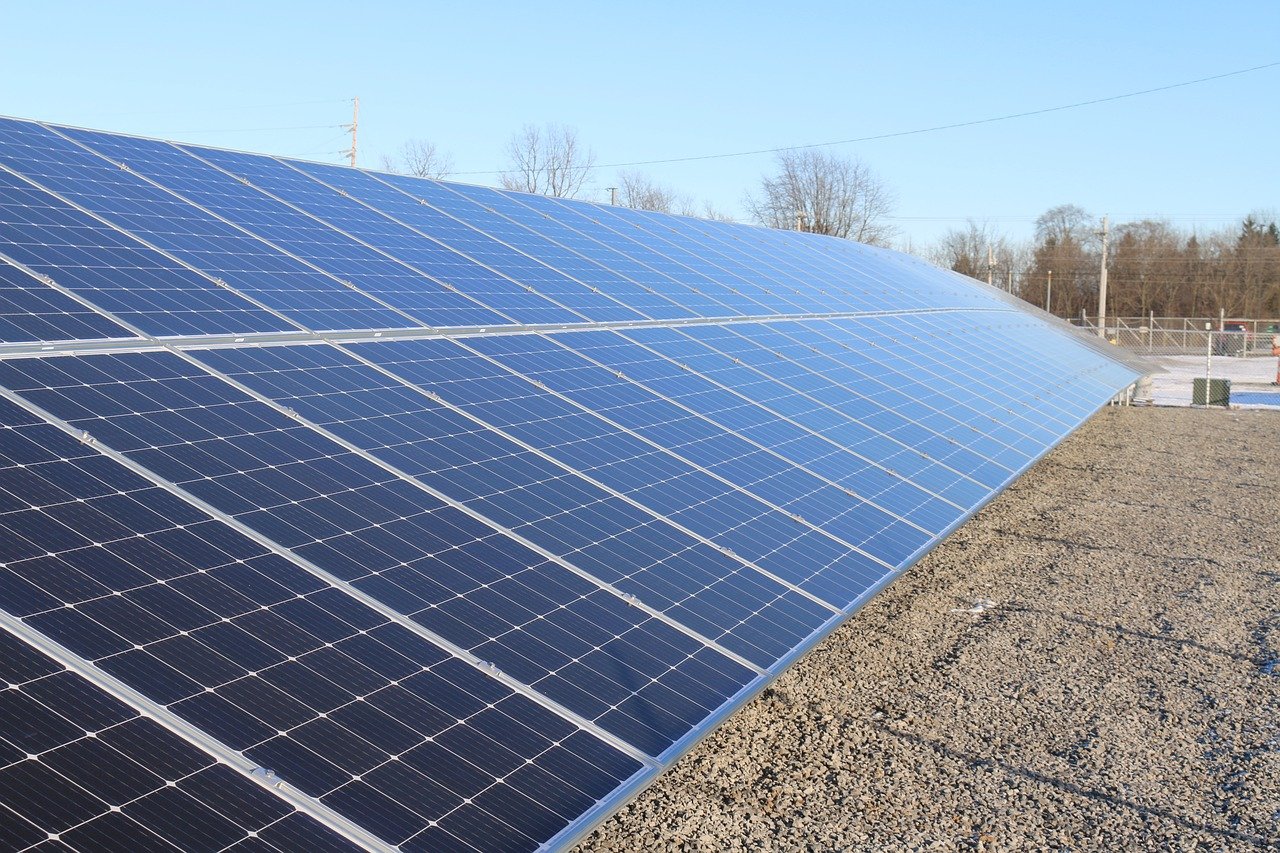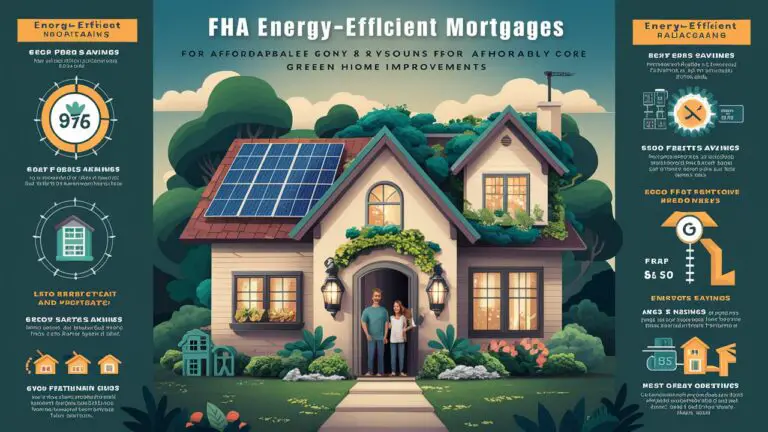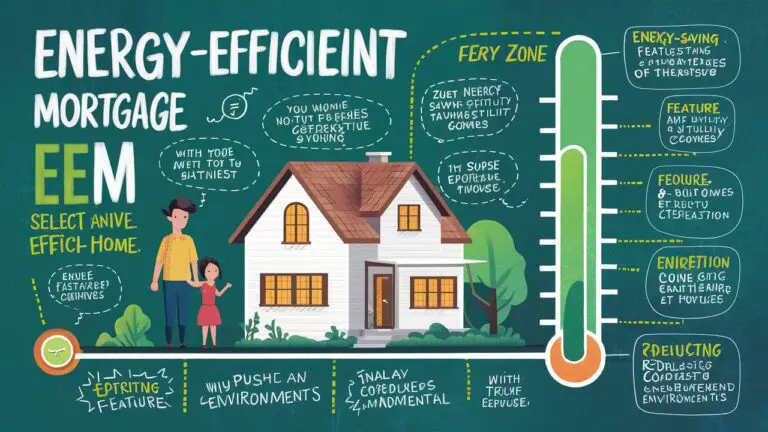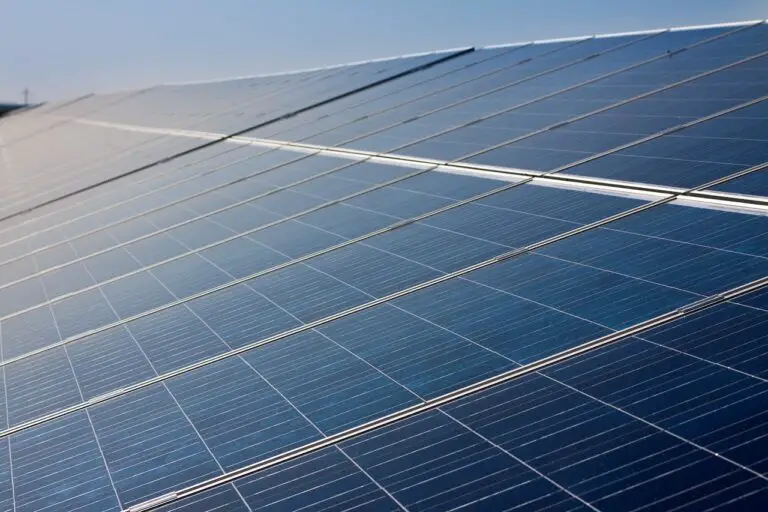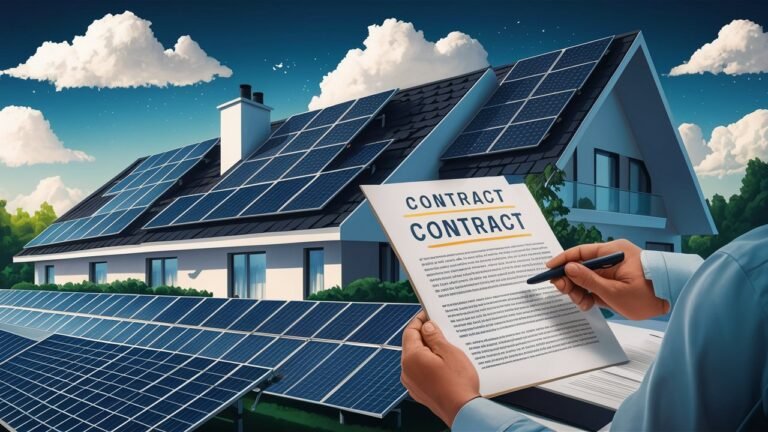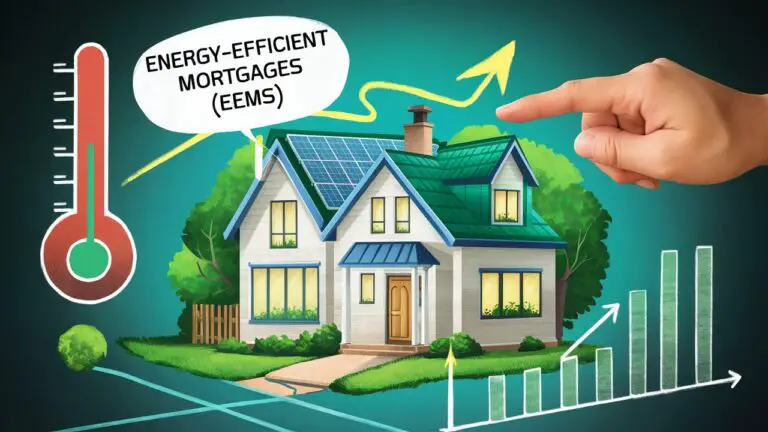Federal Loan Programs
Federal loan programs are essential tools for homeowners looking to invest in energy-efficient upgrades and green home improvements. These programs provide financial assistance for various projects, including installing solar panels and enhancing home energy efficiency. This article explores different federal loan programs available, their benefits, and how they can support your eco-friendly renovations.
Overview of Federal Loan Programs for Green Home Improvements
Federal loan programs aim to support homeowners in their pursuit of green home improvements. These loans often come with favorable terms and conditions, making them an attractive option for financing upgrades such as solar panel installations. Here are some key federal loan programs to consider:
1. FHA Energy-Efficient Mortgage (EEM) Program
The FHA Energy-Efficient Mortgage (EEM) program is designed to help homeowners finance energy-efficient upgrades. This program offers a way to integrate the cost of improvements into a new or existing mortgage. The main features of the FHA EEM program include:
- Low Interest Rates: FHA EEMs often come with lower interest rates compared to traditional loans. This can reduce the overall cost of the loan and make it easier to afford energy-efficient upgrades.
- Increased Loan Limits: Borrowers can add the cost of energy-efficient improvements to their mortgage without needing a larger down payment. This helps make green home improvements more accessible.
- Flexible Qualification Requirements: The FHA EEM program is available to a wide range of borrowers, including those with less-than-perfect credit. This flexibility increases the chances of approval for those seeking loans for solar panels and other green upgrades.
For more details, visit the U.S. Department of Housing and Urban Development (HUD) website.
2. USDA Rural Development Loans
USDA Rural Development Loans are intended for homeowners in rural areas who wish to make energy-efficient improvements. These loans offer several benefits, such as:
- No Down Payment: USDA loans often do not require a down payment, making them an attractive option for homeowners with limited funds.
- Competitive Interest Rates: The program offers competitive interest rates, which can make financing green home improvements more affordable.
- Energy Efficiency Focus: Loans can be used specifically for energy-efficient upgrades, including solar panel installations and other green home improvements.
To learn more, visit the USDA Rural Development website.
3. VA Energy-Efficient Mortgage Program
The VA Energy-Efficient Mortgage Program is available to eligible veterans and service members. This program allows for the inclusion of energy-efficient upgrades in a VA-backed mortgage. Key benefits include:
- No Down Payment: Like other VA loans, this program does not require a down payment, which can help veterans and service members finance green home improvements more easily.
- Low Interest Rates: The program offers competitive interest rates, which can lower the overall cost of the mortgage.
- Energy Efficiency Benefits: The program is designed to promote energy efficiency, making it a good choice for those looking to install solar panels or make other eco-friendly upgrades.
For more information, check out the U.S. Department of Veterans Affairs (VA) website.
Benefits of Federal Loan Programs for Solar Panels
Federal loan programs provide numerous benefits for those investing in solar panels. Here’s why you might consider these loans for your solar energy project:
1. Financial Accessibility
Federal loan programs often offer lower interest rates and flexible terms, making it easier to finance solar panel installations. This financial accessibility helps reduce the upfront cost of going solar, making it a more viable option for many homeowners.
2. Increased Property Value
Installing solar panels can increase the value of your home. Federal loans that support such installations can help you make the upgrade without a significant financial burden. This added value can be beneficial if you decide to sell your home in the future.
3. Long-Term Savings
Investing in solar panels can lead to long-term savings on energy bills. Federal loans provide the opportunity to make these investments while managing the cost effectively. Over time, the savings on utility bills can offset the initial cost of the solar panel system.
For more insights, refer to the Solar Energy Industries Association (SEIA) for details on solar financing options.
How to Apply for Federal Loans for Green Home Improvements
Applying for federal loans involves several steps. Here’s a general guide to help you through the process:
1. Determine Eligibility
Before applying, check the eligibility requirements for each loan program. Each program has different criteria, including income limits, credit score requirements, and property types. Ensure you meet these criteria to improve your chances of approval.
2. Gather Necessary Documentation
Prepare the required documentation for the loan application. This typically includes proof of income, credit history, and details about the property. Having these documents ready can streamline the application process.
3. Submit Your Application
Submit your loan application through the appropriate channels. For FHA, USDA, and VA loans, applications can often be submitted online or through approved lenders. Follow the instructions carefully to ensure your application is complete and accurate.
4. Review and Finalize
Once your application is reviewed, you may need to provide additional information or documentation. After approval, review the loan terms and conditions carefully before finalizing the loan agreement.
For a detailed guide on the application process, visit the Consumer Financial Protection Bureau (CFPB) website.
Conclusion
Federal loan programs offer valuable resources for homeowners looking to invest in green home improvements and solar panels. By understanding the available options and following the application process, you can access the funding needed to enhance your home’s energy efficiency and contribute to a more sustainable future.
